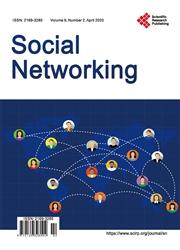WhatsApp as a Tool for Integration and Motivation in Distance Education
引用次数: 4
Abstract
This article was based on a Distance Education project in the Pedagogy course which, for a semester, through active methodology, reviewed the contents of the course to increase the knowledge of these students as well as to carry out a pilot test of Hybrid Teaching. The research aimed to contribute to studies on the use of WhatsApp as a tool that favors the integration and motivation of students in Online and Hybrid Teaching. The project included classes before the classroom lessons, physical and online presence of tutors and teachers, communication via WhatsApp, e-mail, Facebook and the online course platform to review and raise the course fee, raising doubts and encouraging the participation and integration of each student. The object of the study was the use of WhatsApp throughout the course, due to the adhesion of students and teachers using it as a tool for integration and motivation for the graduates of the 17 poles participating in the project. It is a descriptive research with a quantitative approach and characterized by a survey. 104 students participated in the survey, which guarantees a confidence level of 93%. A questionnaire was elaborated and requested, via Google Forms, to understand aspects of integration and motivation, containing 10 questions using the five-level Likert scale. It was possible to verify that the tool presented a 77% satisfaction index with the use of WhatsApp considering its positive influence in the best use of the studies while 90% considered WhatsApp important in the integration of students with students, and teachers with students. Also corroborated that the student interacts better with the studies when there is an interpersonal relation present, in this case, through the classes of study and face-to-face held weekly and the immediate communication provided by WhatsApp group chats. Finally, there was a strong correlation (r = 0.8) between the intensity of satisfaction with the use of WhatsApp in this project and the satisfaction with the continuity of the use of WhatsApp in other courses.WhatsApp作为远程教育整合和激励的工具
本文以《教育学》课程的远程教育项目为基础,在一个学期的时间里,通过积极的方法,对课程内容进行了复习,以增加学生的知识,并进行了混合教学的试点试验。该研究旨在为使用WhatsApp作为一种工具的研究做出贡献,这种工具有利于在线和混合教学中学生的整合和动机。该项目包括课前课程,导师和老师的实体和在线存在,通过WhatsApp, e-mail, Facebook和在线课程平台进行沟通,审查和提高课程费用,提出疑问,鼓励每个学生的参与和融入。本次研究的对象是在整个课程中使用WhatsApp,因为参与该项目的17个极点的毕业生的学生和老师都很喜欢使用它作为整合和激励的工具。它是一种定量的描述性研究,以调查为特征。104名学生参与了调查,这保证了93%的置信度。通过Google表单,我们制作并要求了一份问卷,以了解整合和动机的各个方面,其中包含10个问题,使用5级李克特量表。可以验证的是,考虑到WhatsApp在最佳利用研究方面的积极影响,该工具对WhatsApp的使用提供了77%的满意度指数,而90%的人认为WhatsApp在学生与学生、教师与学生的融合方面很重要。也证实了在有人际关系存在的情况下,学生与学习的互动更好,在这种情况下,通过每周举行的学习课和面对面交流以及WhatsApp群聊提供的即时交流。最后,在这个项目中使用WhatsApp的满意度强度与在其他课程中继续使用WhatsApp的满意度之间存在很强的相关性(r = 0.8)。
本文章由计算机程序翻译,如有差异,请以英文原文为准。
求助全文
约1分钟内获得全文
求助全文

 求助内容:
求助内容: 应助结果提醒方式:
应助结果提醒方式:


